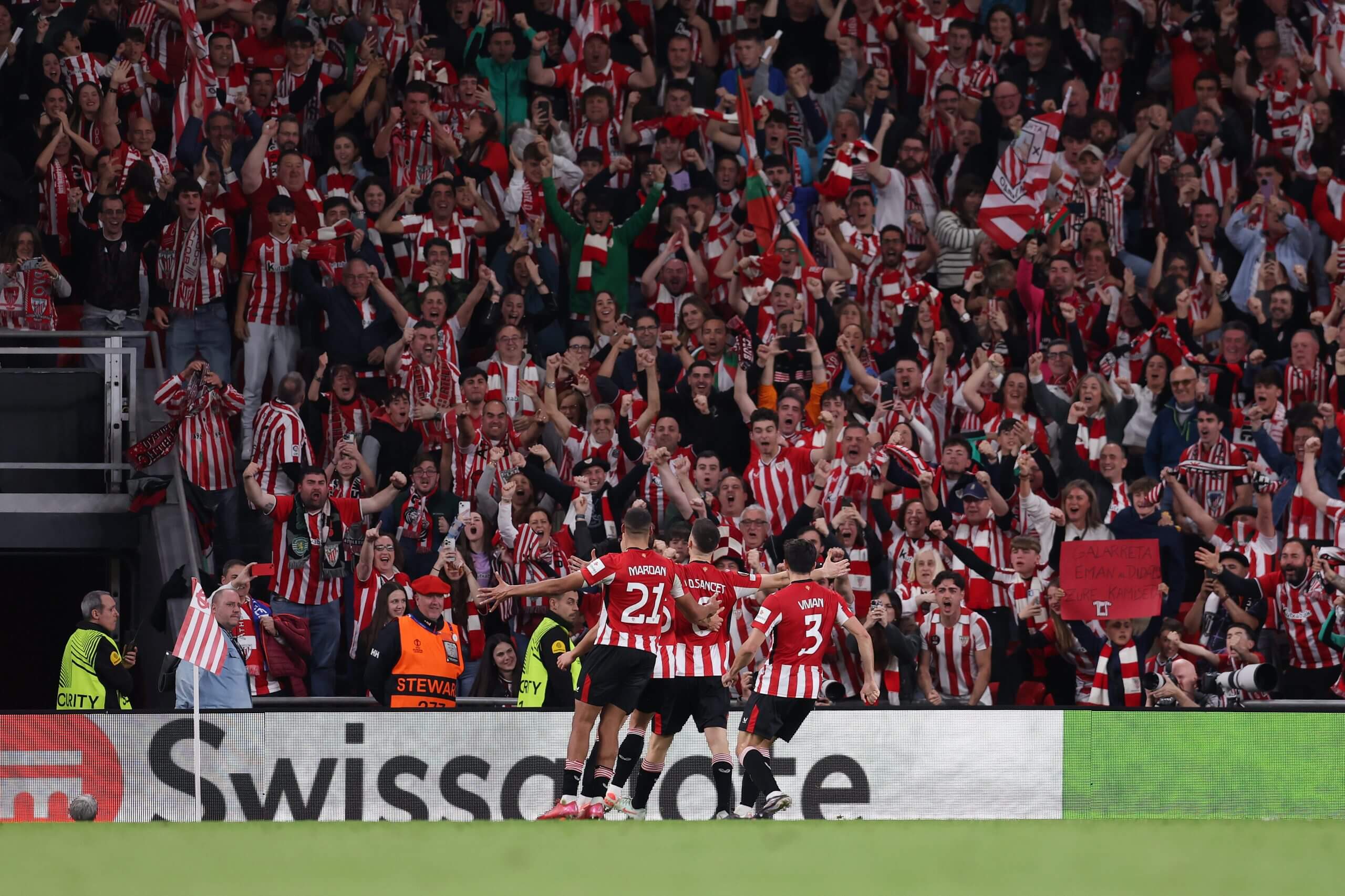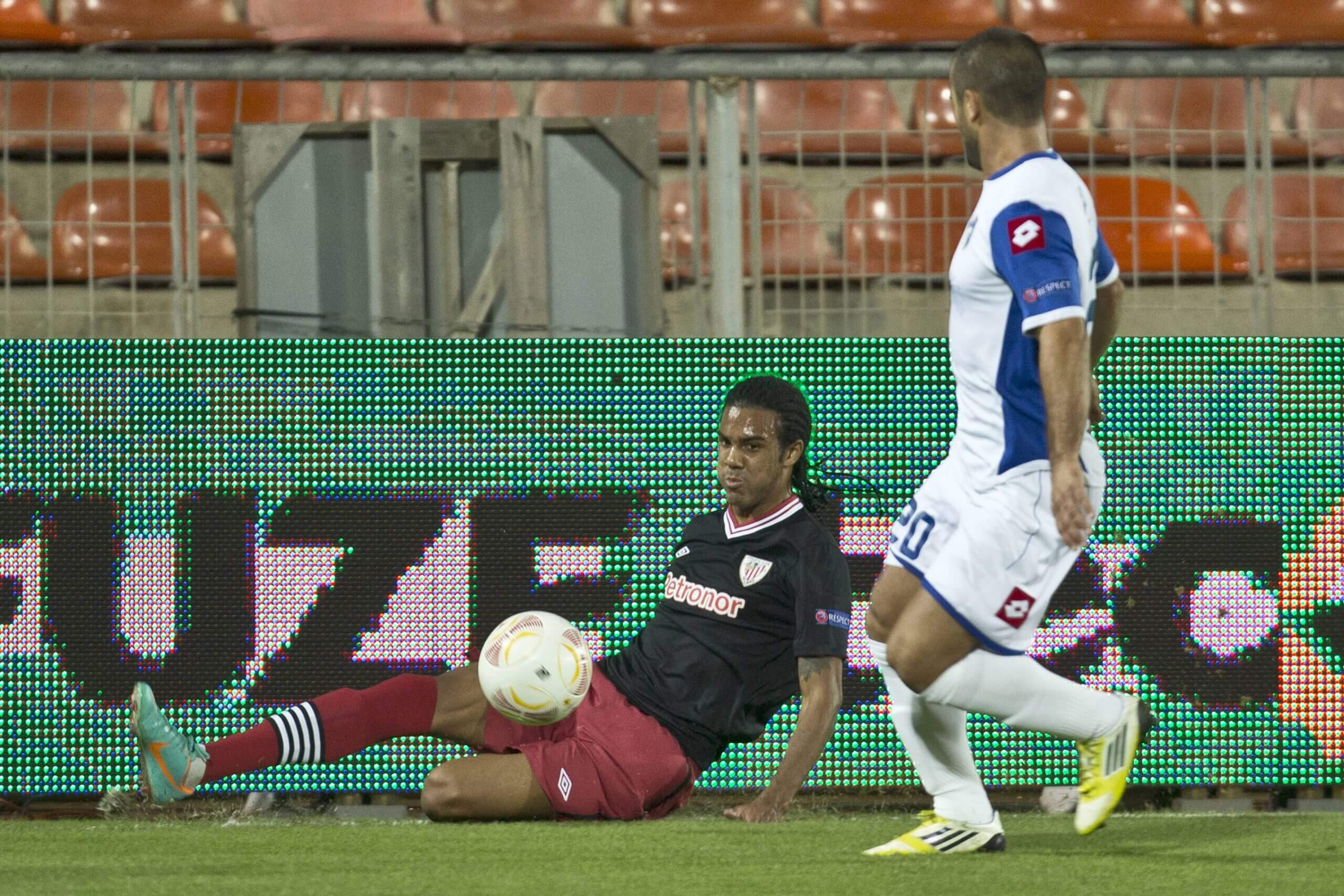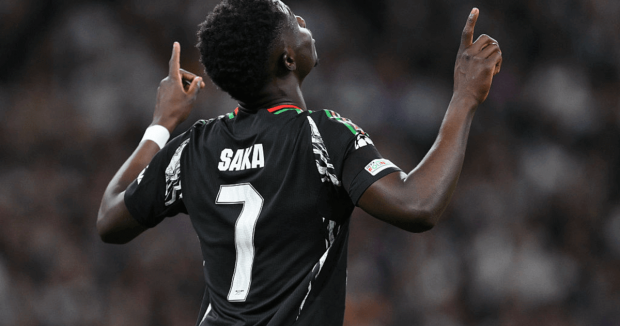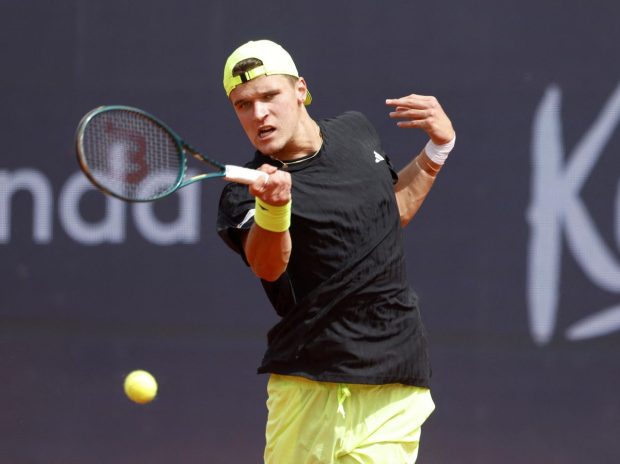
This is an updated version of this article, which was originally published in 2023.
It is fair to say that Athletic Club facing Manchester United in the Europa League semi-finals is something of a miracle.
Famously, the side from the city of Bilbao eliminated United, then managed by Sir Alex Ferguson, from the round of 16 of the same competition in 2012. Reaching the semi-finals this year is not their only achievement. They are on course for a Champions League spot in La Liga and ended a 40-year wait for major silverware last season by lifting the Copa del Rey, so they are not short of quality.
Advertisement
But this does not tell the full story. Athletic have achieved all that while only being able to pick players from the Basque Country — a region of northern Spain and southern France with a population of just over three million. It is a self-imposed policy the club calls a ‘philosophy’, marking them out from other teams.
Here, we explain Athletic Club’s Basque-only policy — how it started, the eligible players and the success it has brought them.
What is the policy?
Athletic Club’s social statutes state that the club “will be guided in the development of its activity by respect for its traditional sporting philosophy”, although the only official written form of the policy is on the club’s website. It states that “Athletic Club may only field players who have come through its own academy or the academies of other clubs in the Basque Country, or players who were born in the following territories which constitute the Basque Country: Biscay, Gipuzkoa, Alava, Navarre, Labourd, Soule and Lower Navarre”.
The Basque Country refers to a distinctive area of northern Spain and southern France with linguistic, historical and cultural ties — it even has its own language, Euskara, spoken by around 900,000 people. Bilbao is its largest city and lies in the province of Biscay, at the northern tip of Spain.
The Basque Cultural Institute estimates the entire Basque Country has around 3.1 million inhabitants. That means Athletic can only select players from a region with around the same population as Wales or the southern U.S. state of Arkansas.

Athletic are into the Europa League semi-finals (Ion Alcoba Beitia/Getty Images)
When did the policy start?
The origins of the policy are up for debate. Athletic were founded in 1898 and originally played with foreigners after British workers and Basque students who had lived there brought football to Bilbao.
The romantic story suggests Athletic started fielding only Basque players in 1911 after being stripped of that year’s Copa del Rey for using ineligible foreign players, thereby sticking two fingers up to their rivals (Athletic were later reinstated as champions by the Spanish football federation). But some historians argue the policy was simply the result of stricter rules on foreigners in the Spanish game and Biscay becoming a football hotbed, making outside signings unnecessary.
The final, non-Basque player for Athletic was Englishman Andrew Veitch, who played for the team in a friendly against the London team Civil Service FC in April 1911.
Who qualifies for the policy?
While the above definition might seem straightforward, there have been different interpretations of the policy over the past 114 years of Athletic’s history.
The club started by only selecting players from Biscay, then began signing established Basque players from outside that region in the 1970s, before incorporating players born outside the Basque Country who had been raised there.
Advertisement
Athletic’s current coach is Ernesto Valverde. Valverde played for them from 1990-1996 but was born in the western province of Extremadura. He was eligible because he grew up in the Basque city of Vitoria-Gasteiz. Former Manchester City defender Aymeric Laporte was born outside the Basque Country in south-west France and only joined Athletic’s youth team when he was 15 in 2009, going on to play for the first team from 2012 to 2018.
Jonas Ramalho, a Basque-born defender with a Basque mother and an Angolan father, became the first Black or minority ethnic background player in Athletic’s history when he made his La Liga debut under Marcelo Bielsa in 2011. Brothers Nico and Inaki Williams have since established themselves as two of the first team’s main stars — both were born in northern Spain to Ghanaian parents.
“I was born in Bilbao,” Ramalho, who now plays for Kuwaiti side Kazma, told Panenka magazine in 2019. “In the end, it doesn’t matter what skin colour you are. The fact of having been born here makes you Basque.”
Some fans have previously argued that the policy should be extended to include the children and grandchildren of Basques living elsewhere. Athletic were previously reported to have missed out on Aston Villa’s ex-Real Madrid forward Marco Asensio — born to a Basque father in Mallorca — because of their philosophy. The former Uruguay, Manchester United and Atletico Madrid striker Diego Forlan, meanwhile, told Spanish radio station Cadena Ser in 2019 that he “would have loved” to sign for Athletic, as his grandmother was born in the Basque city of San Sebastian.
In 2019, Athletic’s women’s team signed Bibiane Schulze, a centre-back born in Germany with Basque heritage whose great-grandfather played for Athletic. “Of course she fits in the philosophy,” then-Athletic president Aitor Elizegi said, as reported by El Mundo. “She fits because of her family, her trajectory, her desire to play with this shirt, her desire for this badge. She fits because she understands this club’s philosophy, which isn’t written down to weaken but to strengthen.”

Ramalho, a Basque-born defender with a Basque mother and an Angolan father, became the first Black or minority ethnic background player in Athletic’s history (Jack Guez/AFP via Getty Images)
Have any other teams had similar policies?
Athletic’s Basque rivals Real Sociedad had their own Basque-only policy for nearly 30 years, mainly due to financial limitations, before they signed Republic of Ireland striker John Aldridge from Liverpool in 1989.
Liga MX side Club Deportivo Guadalajara, commonly known as Chivas, have a ‘Mexican-only’ policy, which dictates the club only fields Mexican-born players or those born elsewhere to Mexican parents. Ecuadorian side El Nacional also only use players from that South American country, as The Athletic’s Jack Lang detailed in this piece about strict selection policies in football.
Has it been successful?
Yes. Athletic are the only team other than Barcelona and Real Madrid never to have played outside the Spanish top-flight and are the third-most successful club in Spain by trophies won (36) behind those two.
In an era in which Barcelona and Madrid have dominated, they are regulars in European competition and are aiming to lift their first continental trophy in the Europa League final at their San Mames stadium on May 21. Their Copa del Rey final win on penalties against Real Mallorca last year was their first major trophy since lifting the cup in 1984. They are fourth in La Liga, with Spain guaranteed five automatic spots for the 2025-26 Champions League.
Advertisement
Those connected to Athletic argue the ‘philosophy’ gives their team an edge on and off the pitch.
“The philosophy gives you more,” former Athletic and Barcelona goalkeeper Andoni Zubizarreta told The Athletic in 2023. “When you’re different in a market where everyone does the same, your shirt is surely worth more money, your broadcasts are worth more money, your fans invest more in that merchandise because you’re unique.”
(Top photo: Ion Alcoba Beitia/Getty Images)
This news was originally published on this post .











Be the first to leave a comment